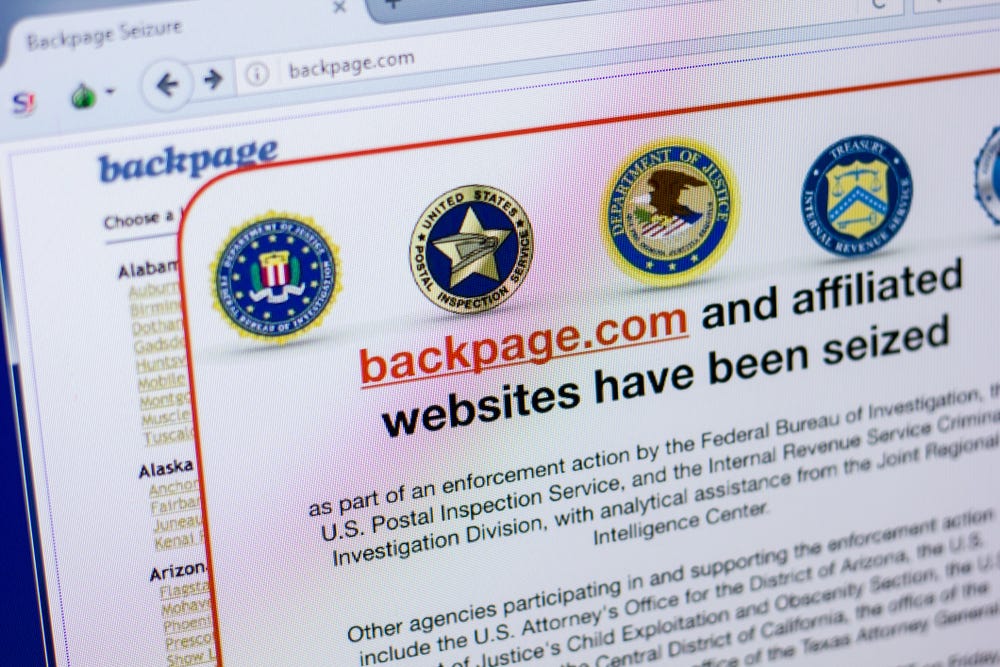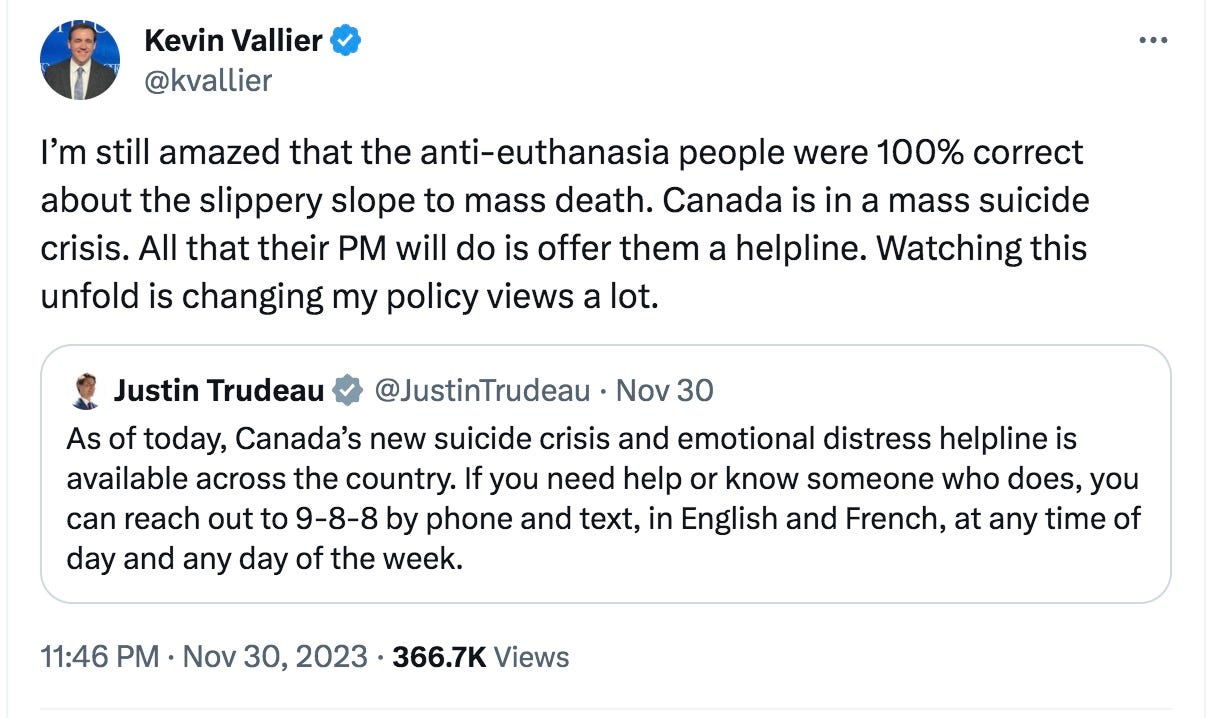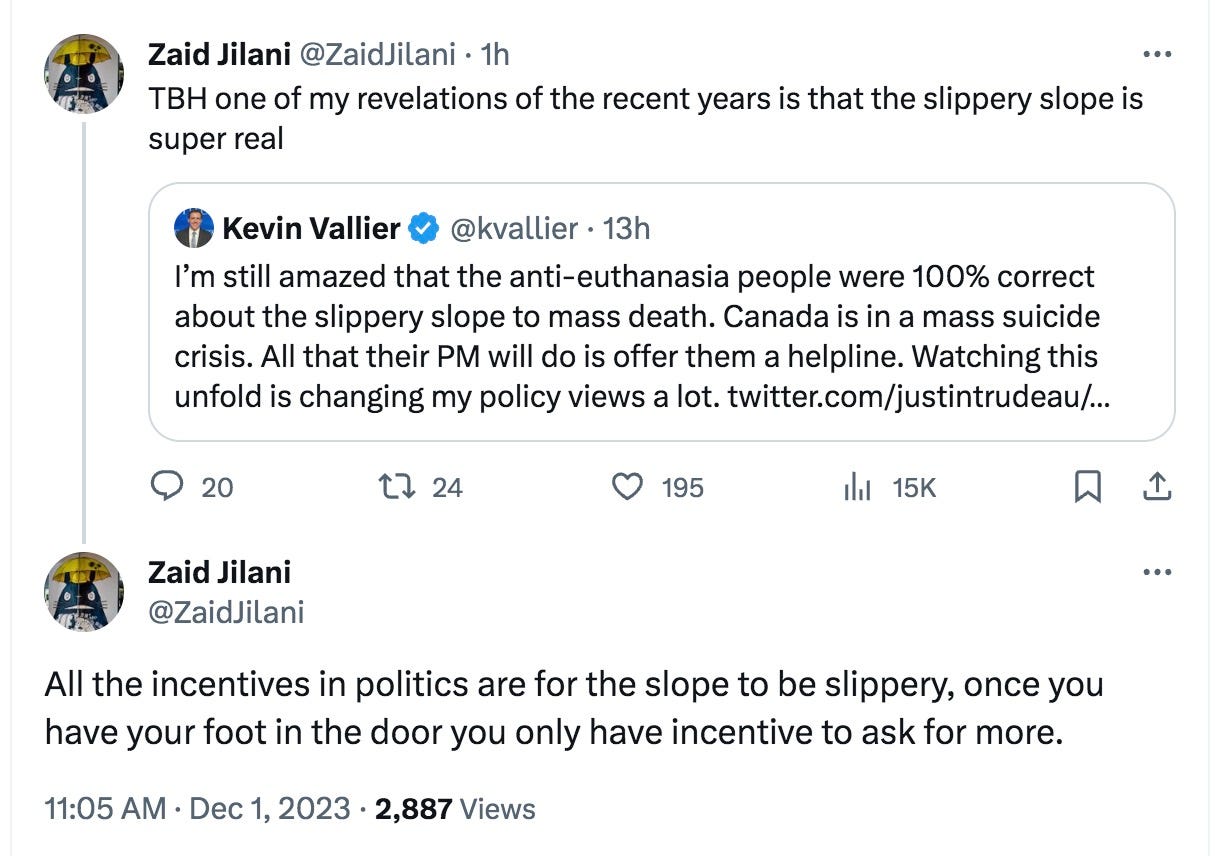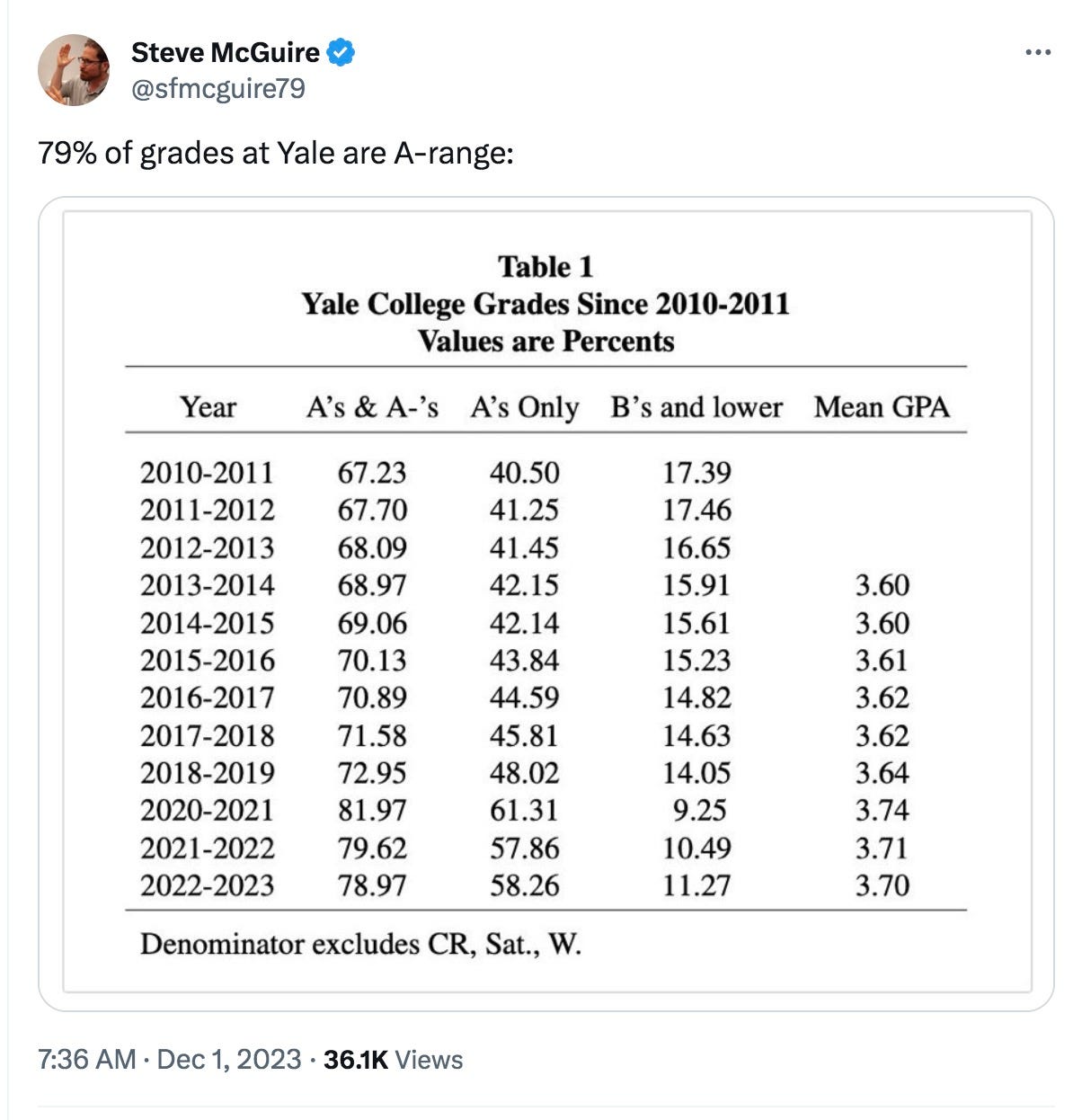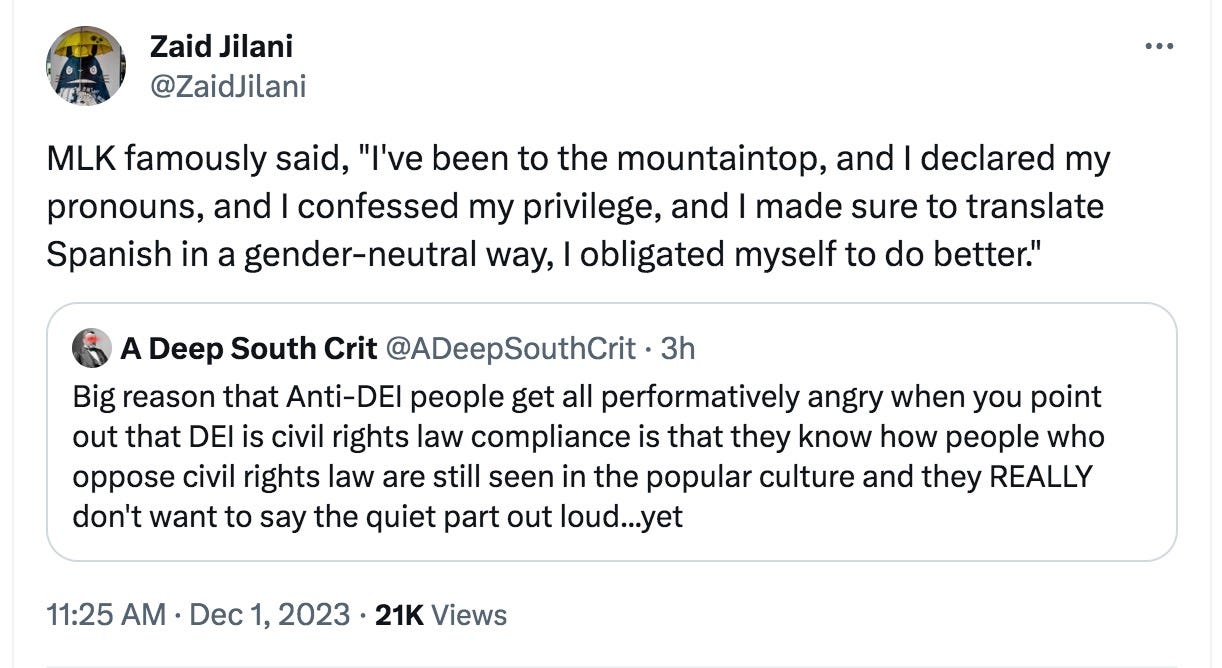E-Pluribus | December 1, 2023
Fire! Hamas apologists; and the implications of the Backpage case.
A round-up of the latest and best musings on the rise of illiberalism in the public discourse:
Corbin K. Barthold: The “Shouting Fire” Pretext
Based on the frequency with which the phrase is cited, you’d think countless Americans have a secret desire to find a crowded theater (good luck with that!) and shout, “Fire!” At City Journal, Corbin Barthold reviews a new book by Jeff Kosseff that, while not advocating crowded-theater yelling, explains the misconception behind the fire trope and how it impacts today’s censorship, misinformation and free expression debate.
The First Amendment protects many forms of falsehood, and [author Jeff] Kosseff’s goal is to justify and defend those protections. On the surface, that might seem a difficult task. (Who’s in favor of lying?) As Kosseff shows, however, the case for censorship is riddled with faulty premises. Those who would regulate false speech assume that the government is well-equipped to mediate truth. They assume that the power to silence dissent will not be abused. They assume that the public will accept the state’s pronouncements of fact at face value. Beyond all, they assume that censorship works—that it doesn’t tend to backfire.
None of these assumptions escapes Kosseff’s Crowded Theater unscathed. The book’s evidence against them is abundant and well-organized. “Attacks on me, quite frankly, are attacks on science,” said Anthony Fauci, even as the government line on various aspects of Covid-19 policy “evolved.” So inept was the Department of Homeland Security’s rollout of a “Disinformation Governance Board,” it seemed like an attempt to create public distrust. Foreign regimes habitually use the concept of “fake news” as cover for arresting journalists and political opponents.
Precisely by “strictly regulat[ing] ‘misinformation,’” Kosseff submits, a state gives “the recipients of the government-sanctioned ‘truth’ . . . reason to doubt its veracity.” In his view, this dynamic arises even when the state tries “merely” to serve as the national fact-checker. “By arrogantly declaring itself the arbiter of the one official truth, the government could risk driving people into baseless conspiracy theories.” On these shores, at least, it is not the government’s job to protect citizens from misleading or obnoxious information. Scurrilous pamphleteering and sensational reporting are as old as the country. So are loose accusations of corruption and paranoid claims about conspiracies and cabals. And so, for that matter, are elite concerns about lies polluting the minds of a gullible peasantry.
[. . .]
It’s true that untruths can circulate rapidly on social media. Stay calm, Kosseff insists. “America has long worried about the effect of new technology in distributing false information.” (He cites an 1858 New York Times article on “the dangers of the new transatlantic telegraph.”) A robust marketplace of ideas and ample avenues for counter-speech remain the quintessential, if highly imperfect, correctives. A more candid and humble government—one more ready to “acknowledg[e] what [it] does not know”—would help matters. So, conceivably, would a greater focus in the schools on civics and media literacy.
“Rather than merely declaring what is true and false,” Kosseff proposes, “the government can provide citizens with the tools to make informed judgments about the veracity of information.” But at a time when the contents of children’s libraries spark intense disputes, and math is denounced as racist, it is perhaps naive to expect new educational programs to remain nonpartisan. Lawmakers can’t seem to mention such plans without pushing their politics in the same breath—a warning sign of how easily these efforts can be corrupted. But Kosseff is not wrong to treat the critical faculties of the average person, and not the paternalistic instincts of the ruling bureaucrat, as the best defense against misinformation.
In a self-governing republic, there is no other way. Even as technology advances and information proliferates—Kosseff, for one, is sanguine about the rise of AI-generated speech—the evaluation of ideas remains the people’s prerogative, both because that’s the system set forth in the Constitution and because no alternative system is likely to endure. “A censor may maintain, he can never restore, the morals of a state,” Gibbon wrote in The History of the Decline and Fall of the Roman Empire. “It is impossible for such a magistrate to exert his authority with benefit, or even with effect, unless he is supported by a quick sense of honor and virtue in the minds of the people.”
Read the whole thing.
Julian Adorney: Why Does the Intersectional Left Defend Hamas?
Many on the left say they do not support Hamas, just the Palestinian people, and yet suggest October 7th was part of the “resistance” to be expected when a people are oppressed. Julian Adorney at Quillette writes about the corner into which those who advocate intersectionality have painted themselves in the current conflict.
The situation in Israel-Palestine is admittedly complicated. There have been decades of conflict between Jews and Muslims and atrocities have been committed by both sides. And, of course, lots of people of good faith support Palestinians in their long struggle with Israel. But Hamas’s actions are beyond the pale. So, why are some people on the far Left supporting them?
One reason is that the people who praise Hamas are influenced by a philosophy that promotes the idea of collective guilt. In this view, Jewish civilians deserve to suffer because the Israeli Defense Force has done bad things. The victims are Jews first and individuals second; and because their primary identity is as a member of their collective group, they are blamed for the sins committed by everyone who belongs to that group. This thinking explains how 51 percent of young Americans can say that acts like raping and killing young women and beheading babies are justified: the girls and babies share an ethnicity with people who have done bad things; therefore, they had it coming.
This perspective hasn’t come out of nowhere; it’s been prevalent for some time among certain academic circles. In Is Everyone Really Equal?, a textbook for graduate students of education, Robin DiAngelo (of White Fragility fame) and Ozlem Sensoy (professor of education at Simon Fraser University in Canada) explicitly promote the idea of collective identity. In Chapter 1 of their book, the authors list some statements that they disagree with. One such statement is the idea that “people should be judged by what they do, not the color of their skin.” The authors dismiss this idea as “predictable, simplistic, and misinformed.”
[. . .]
In Critical Theory circles, it’s common to lump people into the categories of oppressor and oppressed, based on certain immutable characteristics. The oppressors are held largely responsible for all the bad that has ever been done by anyone who shares those immutable characteristics. Thus, all men can be safely blamed for patriarchy and for denying women the right to vote until 1919; all white people can be safely blamed for slavery, etc. In the academy, these claims are usually interpreted in a way that permits some nuance; and most academics stop well short of advocating violence towards “oppressor” groups based on ethnic guilt. But ideologies mutate when they enter the mainstream and generally become more simplistic and more tribal. That’s doubly dangerous when the core of the original ideology is already simplistic and tribal.
Read it all here.
Elizabeth Nolan Brown: The Backpage Defendants Never Stood a Chance
Should we be concerned about the government’s treatment of Backpage, the sex-themed classified ad website? At Reason, Elizabeth Nolan Brown spells out why she believes even those who are repulsed by Backpage should recognize the threat posed by government overreach.
[The Backpage] case has always been deeply political as well, designed to test the limits of Section 230 and free speech online generally.
Backpage was a test case, chosen because its affiliation with sex workers made it an easy target (a lot of folks are willing to ignore injustice if they think it only affects the wrong kind of people). If the government could get away with doing it to Backpage—that is, demanding control over what sorts of speech the platform allowed, punishing leaders and staff for failing to submit, and using the whole thing as a rallying cry to wrest more regulatory control of online content—they could move on to attacking bigger and more widely-used platforms. And that's exactly what they've done in recent years, going after Twitter, Facebook, and other big tech companies—not to mention "the internet's First Amendment," Section 230, more broadly—using the playbook they perfected with Backpage.
[. . .]
The government tried to confuse the public about the Backpage case from the beginning, shouting about sex trafficking whenever possible and crowing about how Backpage's shutdown was a boon for victims. But law enforcement has said otherwise, both in public and in private, and both before and after the site's seizure. Backpage helped police locate victims and prosecutors build cases against perpetrators, and Backpage executives and staff were cooperative in these efforts. Federal prosecutors themselves admitted it in private memos.
In fact, the FBI told auditors with the Government Accountability Office that since the site's shutdown, stopping sex trafficking has become more difficult.
[. . .]
Backpage surely won't be the last website targeted for allowing speech that the government deems undesirable. And what its case shows is how powerful the law enforcement apparatus can be, and how little the protections supposedly afforded by the law and the constitution matter when agents of the state decide to make an example out of you.
Read it all.
Around Twitter (X)
Canada’s Medical Assistance in Dying (MAiD) law is prompting some to reevaluate their positions on slippery slopes:
Steve McGuire gives us a look at how grading works at Yale. The A’s have it:
And finally, with his second appearance of the day, Zaid Jilani with a re-imagined Martin Luther King, Jr. quote for the DEI era:






